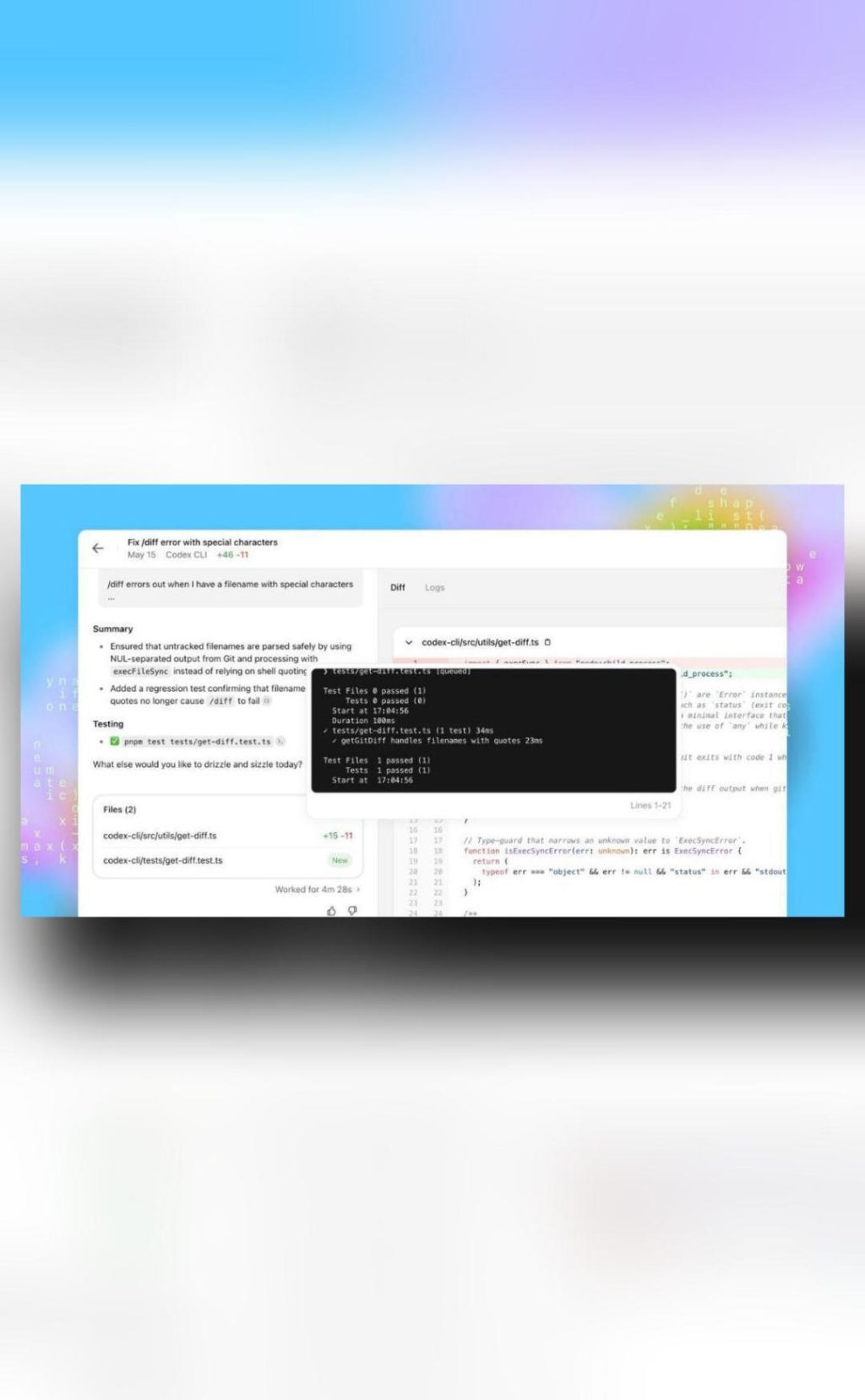
OpenAI’s Codex gets major update, now powered by GPT-5
In a significant development, OpenAI has rolled out a major update to its AI coding assistant, Codex. The update brings a slew of new features that make Codex feel more like a true coding collaborator, extending its reach across Integrated Development Environments (IDEs), GitHub, and the command line. The update is powered by GPT-5, the latest iteration of the company’s highly advanced language model.
Codex, which was launched earlier this year, is designed to assist developers in writing code by providing suggestions, completing code snippets, and even generating entire programs. While the initial launch was a significant step forward in AI-powered coding, the new update takes Codex to the next level by introducing features that make it more intuitive and user-friendly.
One of the most significant additions is the ability to integrate Codex with popular IDEs such as Visual Studio Code, IntelliJ, and PyCharm. This allows developers to access Codex’s capabilities directly within their preferred coding environment, making it easier to write code and reducing the need for context switching.
Another major update is the addition of GitHub integration. Codex can now be used to generate code snippets and even entire projects directly within GitHub. This is particularly useful for developers who work on open-source projects or need to collaborate with others on codebases.
The command line interface has also been updated to provide a more streamlined experience. Developers can now use Codex to generate code snippets, complete functions, and even debug code directly from the command line.
But what makes this update truly exciting is the power of GPT-5 behind it. GPT-5 is the latest iteration of OpenAI’s language model, which has been trained on a massive dataset of text from the internet. This training allows GPT-5 to understand natural language and generate human-like text.
In the context of Codex, this means that the AI coding assistant can now understand and respond to complex queries and commands. It can generate code that is not only correct but also readable and maintainable. This is a significant step forward in AI-powered coding, as it allows developers to focus on the creative aspects of coding rather than getting bogged down in details.
The update also includes several other features and improvements, including:
- Improved code completion: Codex can now complete code snippets more accurately and with fewer errors.
- Enhanced code generation: Codex can now generate code snippets and entire programs with greater accuracy and flexibility.
- Better debugging: Codex can now help developers debug code by providing suggestions and solutions to common errors.
- Improved integration with popular tools and services: Codex can now integrate with popular tools and services such as GitHub, GitLab, and Bitbucket.
The update to Codex is a significant step forward in AI-powered coding, and it has been met with widespread excitement in the developer community. For developers who use Codex, the update promises to make coding faster, easier, and more enjoyable.
As the company behind Codex, OpenAI is committed to continuously improving and updating the AI coding assistant. The company has been at the forefront of AI research and development, and its work on Codex is just one example of its commitment to advancing the field.
In conclusion, the update to Codex is a significant step forward in AI-powered coding, and it promises to make a significant impact on the developer community. With its ability to integrate with popular IDEs, GitHub, and the command line, and its power of GPT-5 behind it, Codex is poised to become an essential tool for developers.
Source: https://geekflare.com/news/openai-brings-codex-to-your-ide-with-big-new-update/






